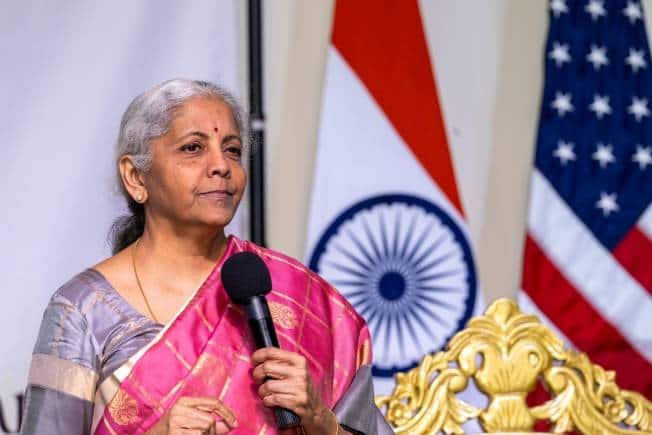India is adopting a long-term, asset-driven approach to strengthen its supply chains, rather than seeking short-term fixes, Finance Minister Nirmala Sitharaman said on May 6.
Speaking at the Asian Development Bank (ADB) Governors’ Seminar on ‘Cross Border Collaboration for Future Resilience’ held in Milan, Italy, Sitharaman highlighted the country’s efforts to build resilience by tapping into its demographic advantage, technological capabilities, and policy frameworks.
“India’s approach on supply chains has not been short term. We’ve taken a long-term approach,” the minister said. “Our approach is to strengthen ourselves more on the basis of the assets that we have, whether it is in the form of human capital or technology in which we have a lead, if I can say that way, and also in sectors in which we think we can build further.”
The Finance Minister pointed to the demographic dividend as one of India’s core advantages in building a competitive and resilient supply chain ecosystem. “We have about 600 million people who are less than 25 years of age. So we are not dealing with an economy which is ageing,” she noted.
Sitharaman also emphasised the role of Digital Public Infrastructure (DPI) in democratising market access and empowering small producers across the country. “We’ve developed Digital Public Infrastructure (DPI) to make sure that access to global market is given to even the citizen who’s somewhere in the far flung area in a village with some handicraft products that he wants to market.”
She added that the government’s policies have been consciously designed to fully leverage India’s technological and human resource levers, with a focus on boosting manufacturing and services. “So looking at levers which we want to fully use, whether it is technology or manpower, the government’s policies have been tailored in such a way that we are able to support manufacturing and the service sector in which India has a lead.”
On the sidelines of the ADB meeting, Sitharaman also met Nobumitsu Hayashi, Governor of the Japan Bank for International Cooperation (JBIC), to review progress under the India-Japan investment partnership.
“The Union Finance Minister noted that over 70 percent of the ambitious 5 trillion yen investment target to India has been realised and India looks forward to strengthening the Special Strategic and Global Partnership as both nations build on 10 years of cooperation,” the Finance Ministry said in a post on X.
Sitharaman encouraged JBIC to further support Japanese investments in India’s key high-growth sectors including manufacturing, semiconductors, green energy, and infrastructure, the post added.
While Japan remains India’s fifth-largest source of foreign direct investment, with equity inflows totalling US $43.28 billion, Sitharaman emphasised the potential to broaden this engagement. With bilateral trade currently at US $23 billion, the Finance Minister highlighted immense scope to deepen collaboration in civil aviation, AI, green energy, and other key sectors, the ministry said.







